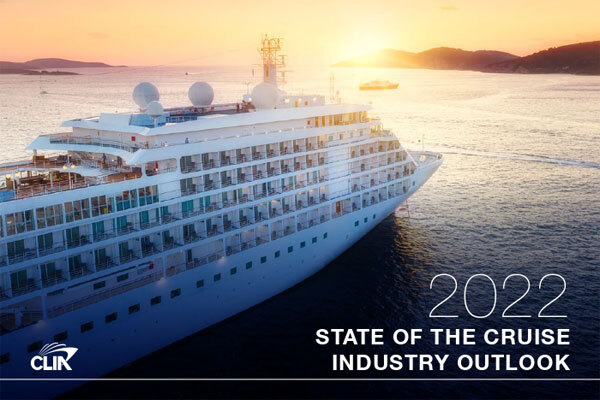Cruise industry 2022 outlook report quantifies value of cruise

Cruise Lines International Association, the leading voice of the global cruise community, released the 2022 State of the Cruise Industry Outlook report. The annual report shows how the industry has continued to resume responsibly with proven protocols that are leading the way, underscores the value of cruise tourism to local communities and national economies around the world, and charts the industry’s continued progress towards achieving carbon neutrality.
“The 2022 State of the Cruise Industry Outlook report provides an opportunity to reflect on how far our industry has come as CLIA ocean-going cruise lines have welcomed more than six million guests onboard since resuming operations in July 2020. While our focus on health and safety remains absolute, our industry is also leading the way in environmental sustainability and destination stewardship” said Kelly Craighead, President and CEO of CLIA.
According to Marie-Caroline Laurent, Director General for CLIA Europe: “The return of cruise in Greece is a welcome boost to the more than 11.000 people employed in the Greek sector, as well as those whose livelihoods depend upon the industry, including travel agencies, hotels, tour guides, port operators and many other service providers across the country.”
The 2022 outlook report also features reflections from cruise industry partners and community members around the world, including from Robert Courts MP, United Kingdom Maritime Minister; Mato Franković Mayor of Dubrovnik; Laura McDonnell, shop owner in Juneau, Alaska; Alex Fraile, tour guide in Palma de Mallorca, Spain; Danny Genung, CEO, Harr Travel; and Mandy Goddard, M.Ed., CLIA Elite Cruise Counselor (ECC).
Highlights from the report include:
Fleet of the Future. By 2027, the CLIA ocean-going cruise line member fleet will reflect significant advancements in the cruise industry’s pursuit of a cleaner, more efficient future.
o 26 LNG-powered cruise ships
o 81% of global capacity fitted with Advanced Wastewater Treatment Systems
o 174 cruise ships with shoreside power connectivity
2020 Global Economic Impact. When compared to 2019, the 2020 economic data illustrates the pandemic’s far-reaching effects on the wider cruise community and underscores the importance of cruise tourism to economies around the world.
o 5.8M passenger embarkations (-81%)
o 576K cruise-supported jobs (-51%)
o $63.4B total economic contribution (-59%)
Resumption Progress. Industry-leading protocols are facilitating the resumption of cruise tourism around the world, which is putting people back to work and reinvigorating local and national economies.
o More than 75% of ocean-going member capacity has returned to service
o Nearly 100% projected to be in operation by August 2022
Value of Cruise Tourists. Cruise tourists, and the money they spend, create jobs and opportunities for local communities around the world.
o Every 24 cruisers creates one full-time equivalent job
o Cruisers spend an average of $750 USD per passenger in port cities over the course of
a typical seven-day cruise
o 6 in 10 people who have taken a cruise say that they have returned to a destination that they first visited via cruise ship
Destination Stewardship. Continued collaboration with local communities in the destinations cruise ships visit remains a critical focus for the cruise industry, including in Dubrovnik, Croatia, the Greek destinations of Corfu and Heraklion, and the City of Palma in the Balearic Islands.
Class of 2022. CLIA ocean-going member cruise lines are projected to debut 16 new cruise ships in 2022, including five LNG-powered vessels and nine expedition ships. The class of 2022 will be 100% equipped with Advanced Wastewater Treatment Systems.
